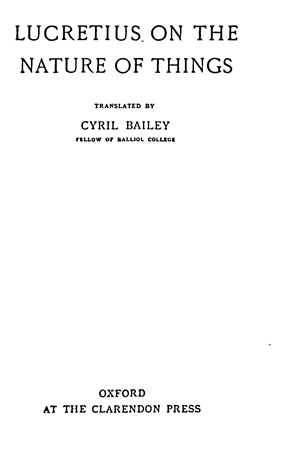
On the Nature of Things
- Titus Lucretius Carus (author)
- Cyril Bailey (translator)
Lucretius expounds the Epicurian view that the world can be explained by the operation of material forces and natural laws and thus one should not fear the gods or death. He had a considerable influence on writers such as Montaigne.